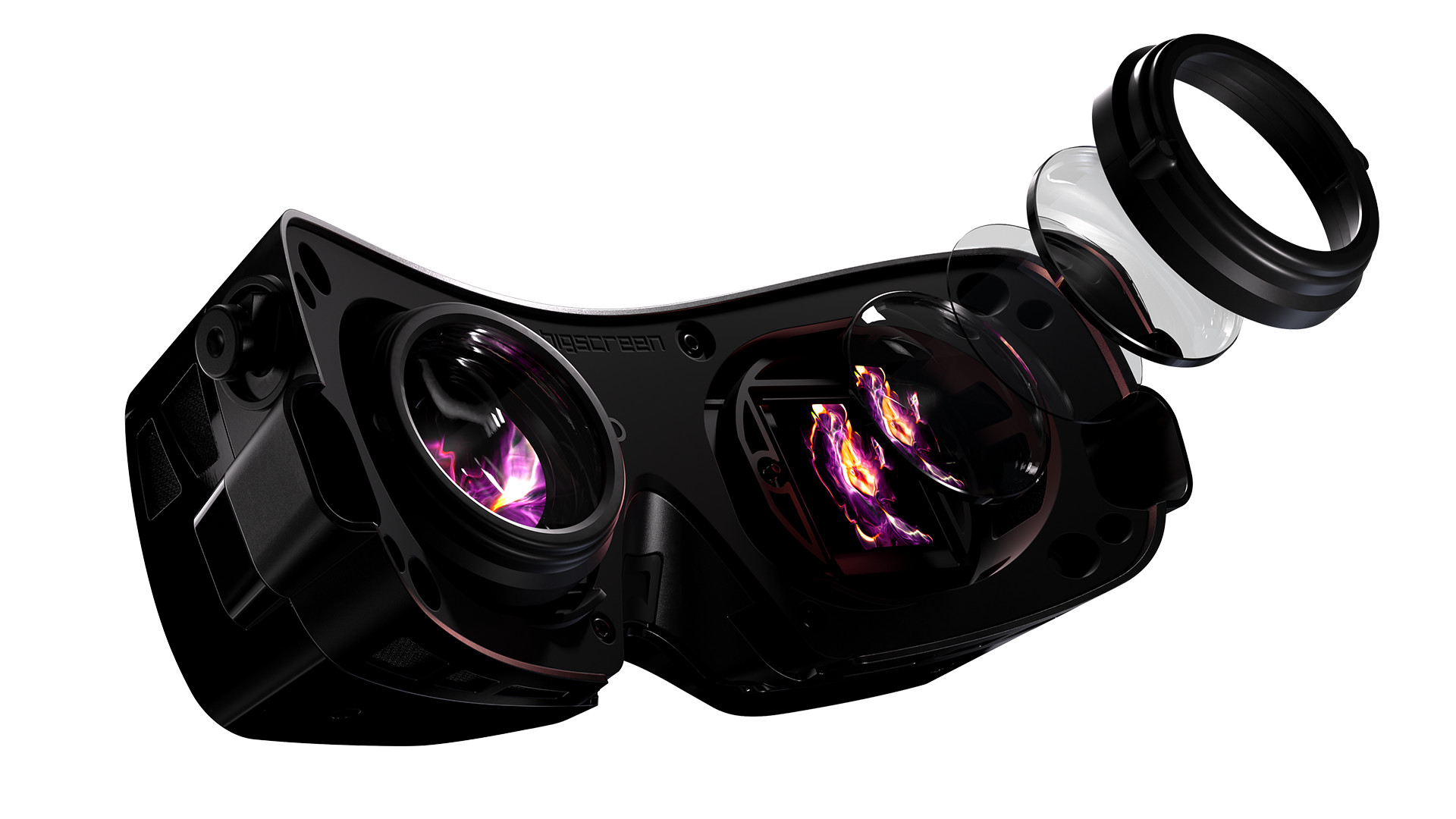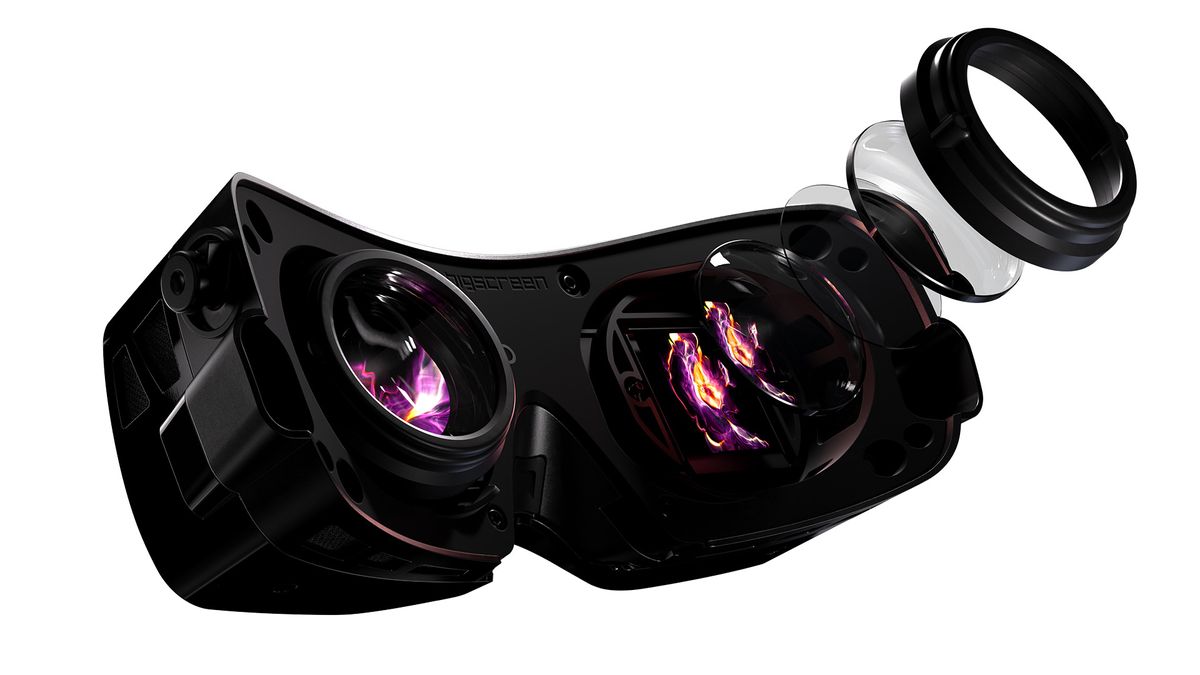
Virtual reality developer Bigscreen is expanding into hardware by revealing its self-proclaimed “world’s smallest VR headset,” the Beyond. That title isn’t totally without merit, either.
The Beyond (opens in new tab) is about 5.6 inches long, two inches wide, and clocks in at a little over four ounces barring any added accessories. For comparison’s sake, the Oculus Quest 2, another lightweight VR headset, weighs nearly four times as much at 17.7 ounces. Company CEO Darshan Shankar told TechCrunch that, as technology improved, VR headsets became bigger and bulkier. Heavier devices can lead to neck strain restricting user movement and impacting gameplay. So Bigscreen decided to go the opposite route by creating a more comfortable, compact machine. Granted, it achieves some of this weight loss by offloading batteries and some components to the connected PC.
And although it’s a lightweight headset, the developers didn’t skimp on the power as it boasts some admittedly impressive specs.
Under the headset hood
Unlike the Oculus Quest 2, Bigscreen didn’t create its own operating system. The Beyond runs on Steam VR, allowing it to support the platform’s base station, controllers, and a multitude of accessories. It even comes with SteamVR Tracking (opens in new tab) built in so it can accurately track your body’s movements with a high degree of accuracy.
Outputting VR games are two 5K resolution (5,120 x 2560 pixels) 90Hz MicroOLED screens resulting that, the company promises, offer “breathtaking colors [and] razor-sharp clarity.” And because of that tech, users won’t have to deal with unwanted motion blur or the annoying screen door effect. That’s when thin black lines appear in between the pixels, ruining the image quality.
To achieve the Beyond’s lightweight design, developers made some interesting design choices. For starters, the headset comes with three-element pancake optic lenses allowing for a compact fit without sacrificing clarity. It also doesn’t come with any on-device controls or adjustment knobs to get a perfect fit as each device will be made custom fit for your face. That fit is achieved via a 3D face scan.
Custom made for you
When you order the Beyond, Bigscreen will email you a link to download the company’s own face-scanning app, which is exclusive to iOS. The app will send a detailed 3D mesh of your face to the company’s Los Angeles factory, which uses it to create your tailor-fit headset.
Pre-orders are currently open for (opens in new tab) the Beyond, which will retail for $999. A couple of accessories are available for pre-order, too, with more on the way. You can get an audio strap, which is basically a pair of headphones, for $99, and special magnetic prescription lens for $79 that go over the eye socket. Later on, you’ll be able to purchase a custom-fit face cushion and fiber optic cable, but at this time, there’s no price tag for those two.
In the US, the Beyond will ship out Q3 2023 (around mid-summer). But because of the custom-built nature of the headset, it may take a few weeks or months until it arrives at your house. Other countries like Canada, Japan, and Australia won’t get the Beyond until Q4.
All in all, pretty interesting headset. As we noted above, unlike Oculus Quest, this is not a wireless headset. Other reports (opens in new tab) point out you’ll need to plug the Beyond into its link box and connect that to your PC to provide both video and power. We asked Bigscreen if there are plans to create an Android version of its face-scanning app. This story will be updated if we hear back.
While we have you, be sure to check out TechRadar’s recently updated list of the best VR headsets of 2023.
(Except for the headline, this story has not been edited by PostX News and is published from a syndicated feed.)

